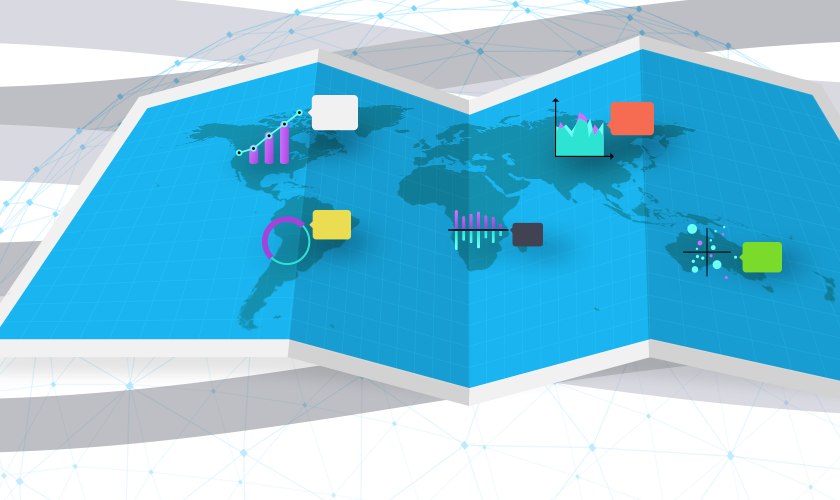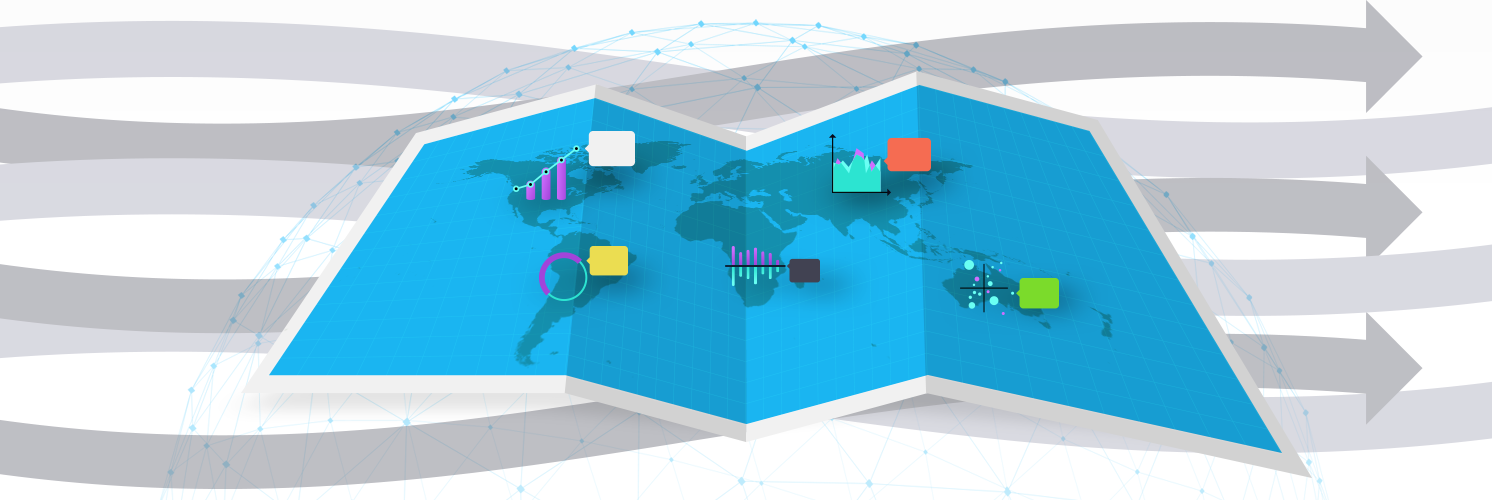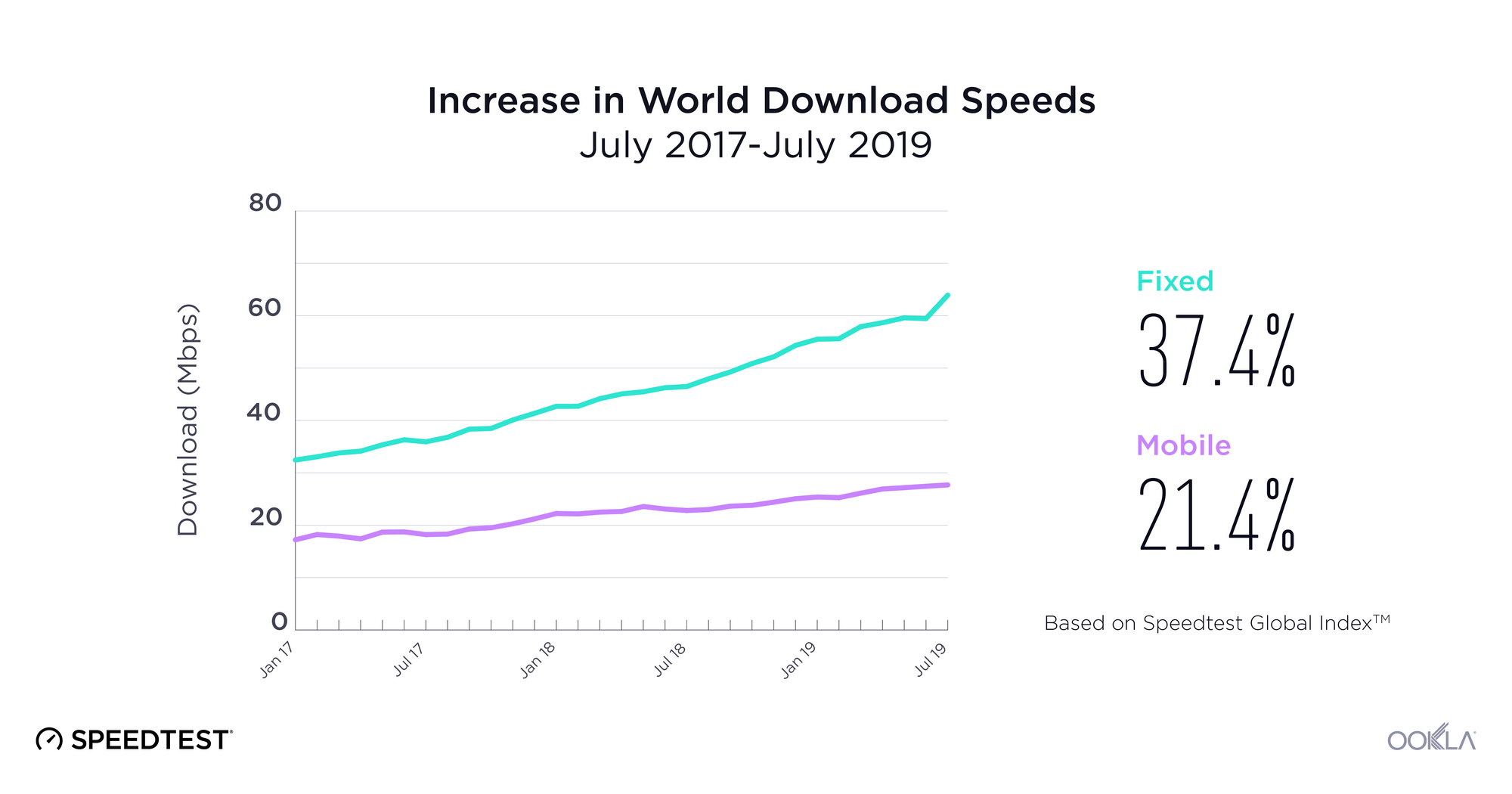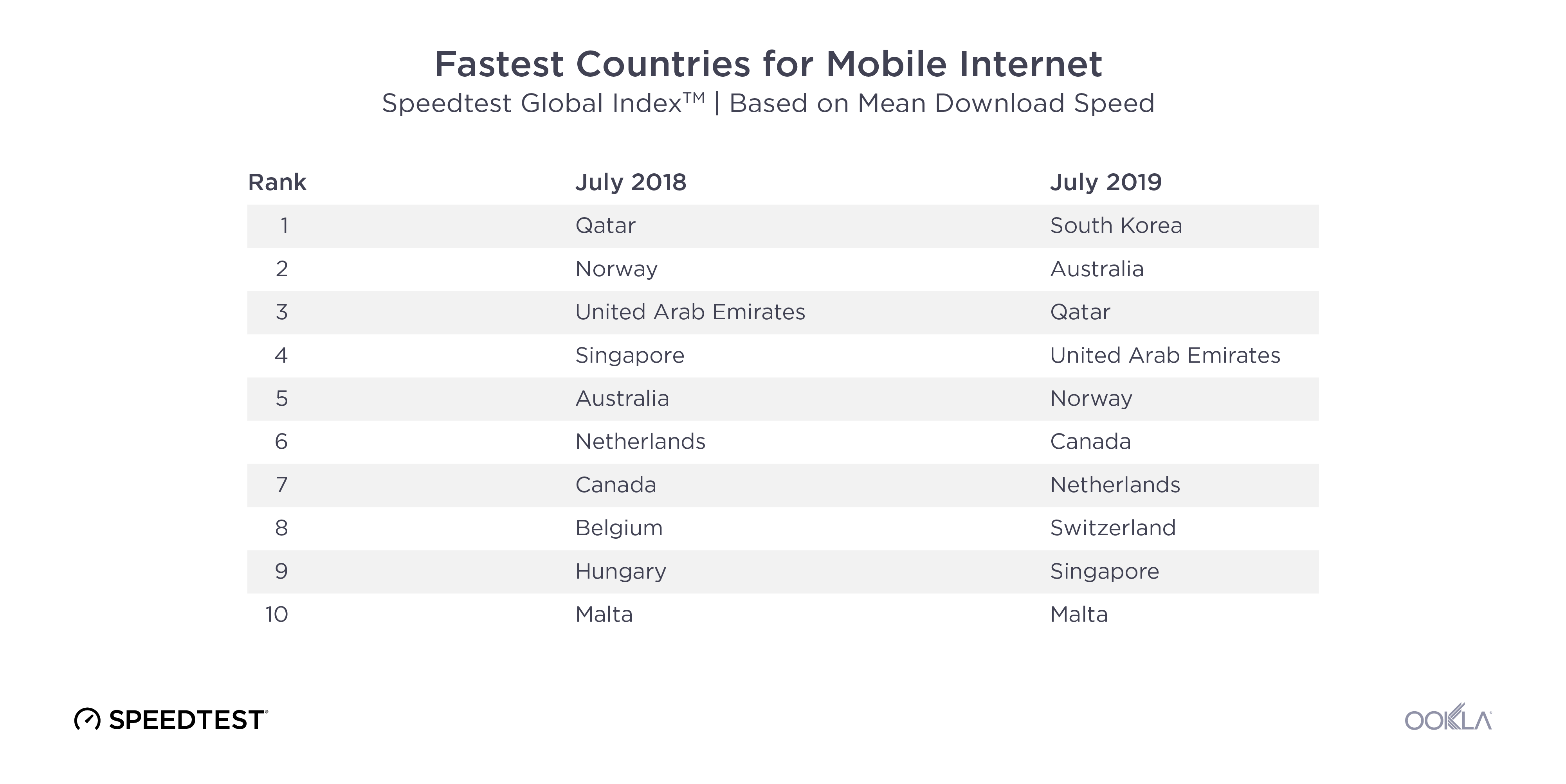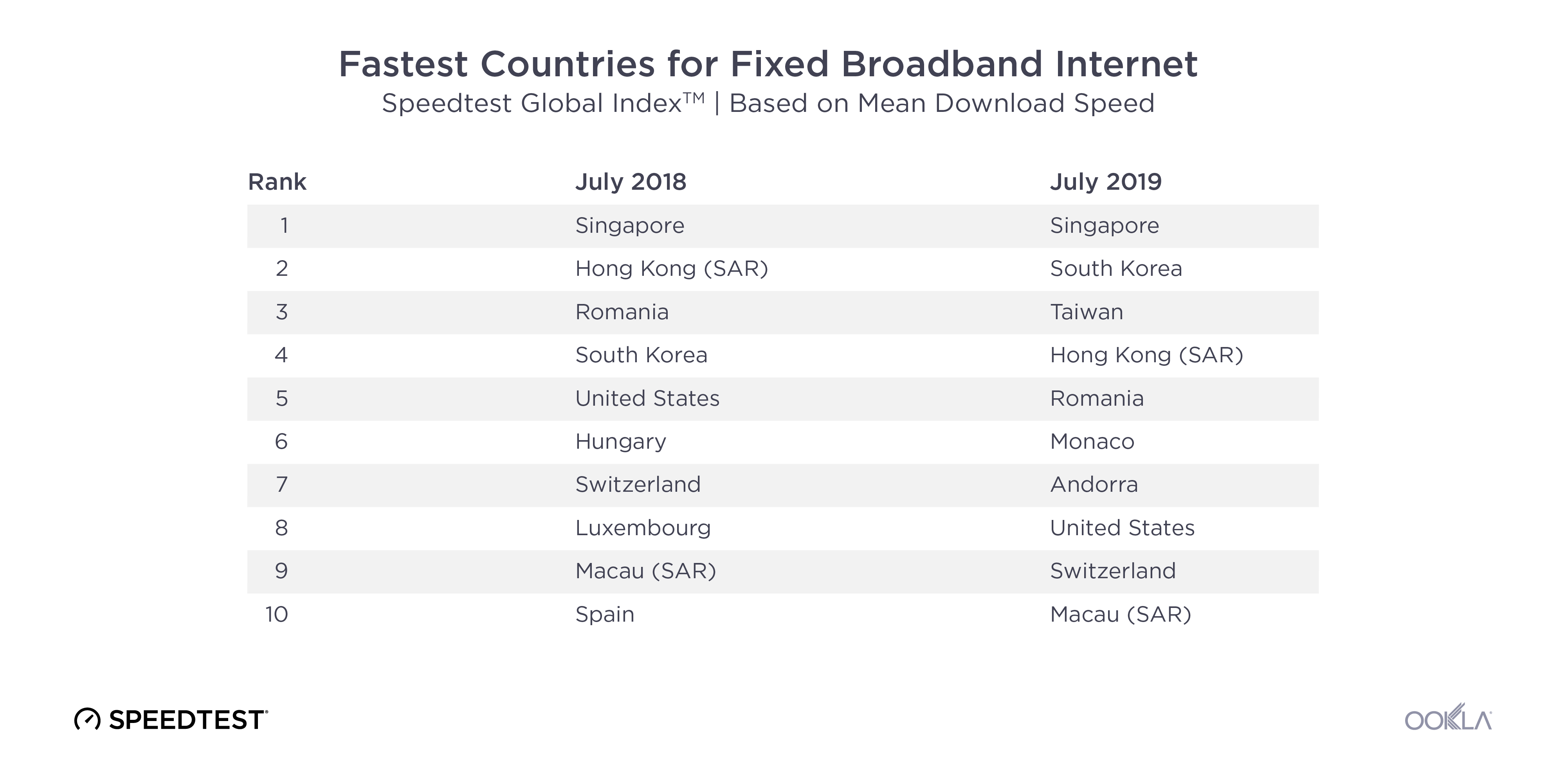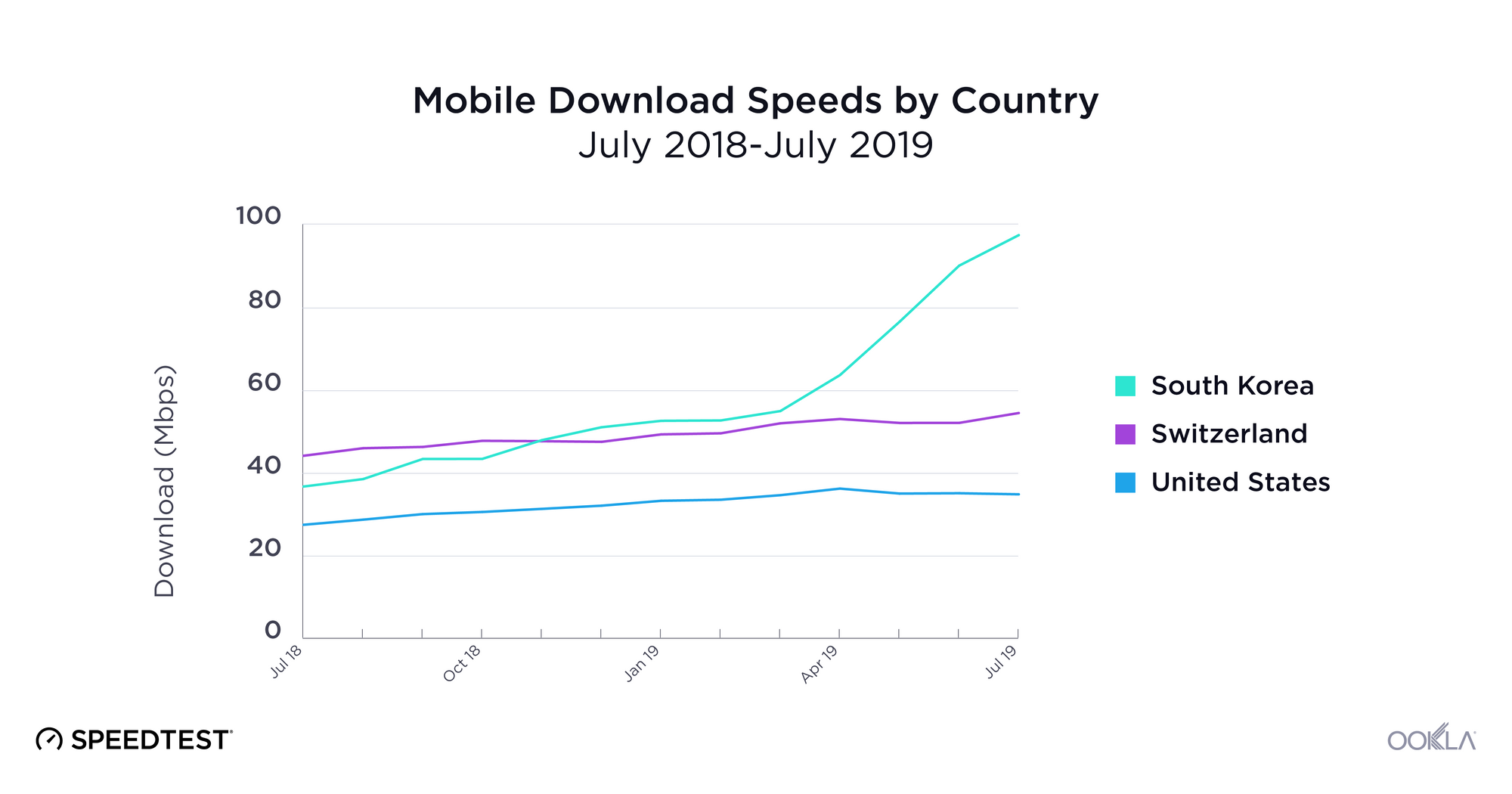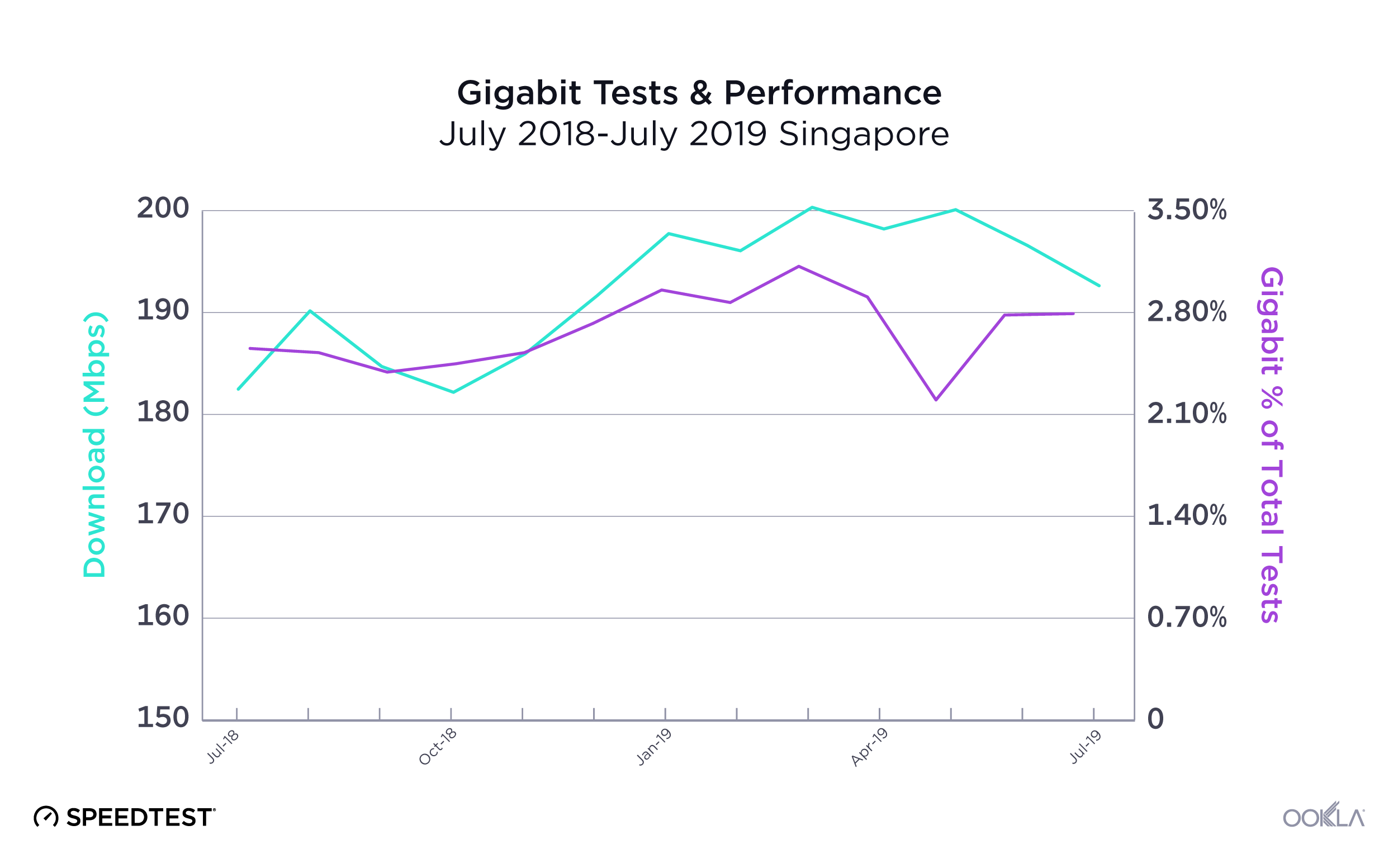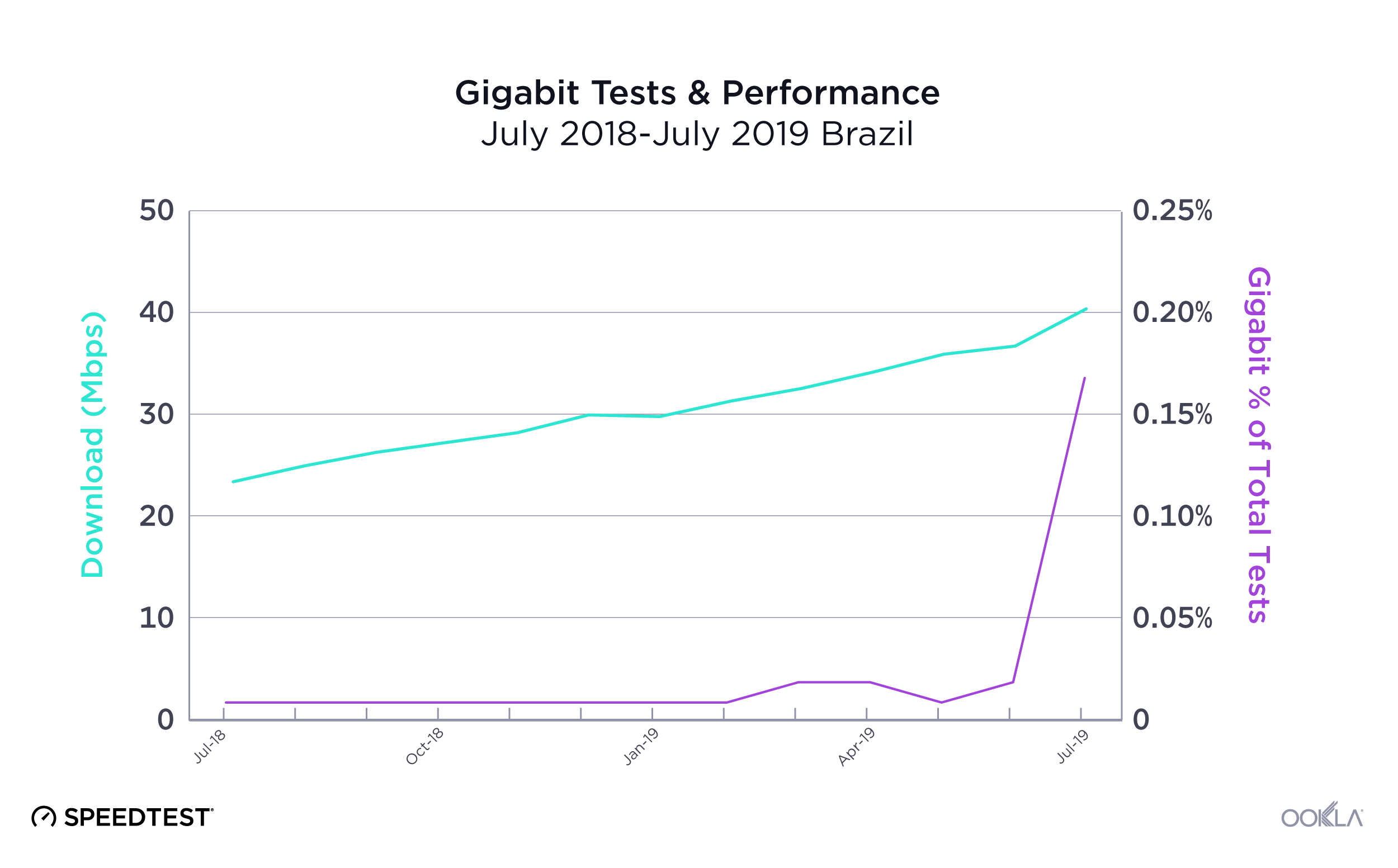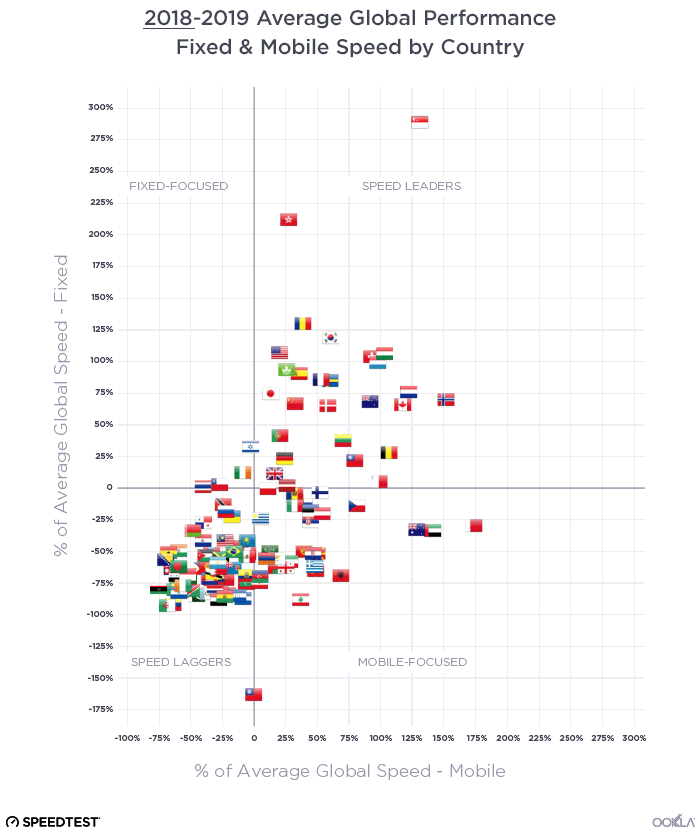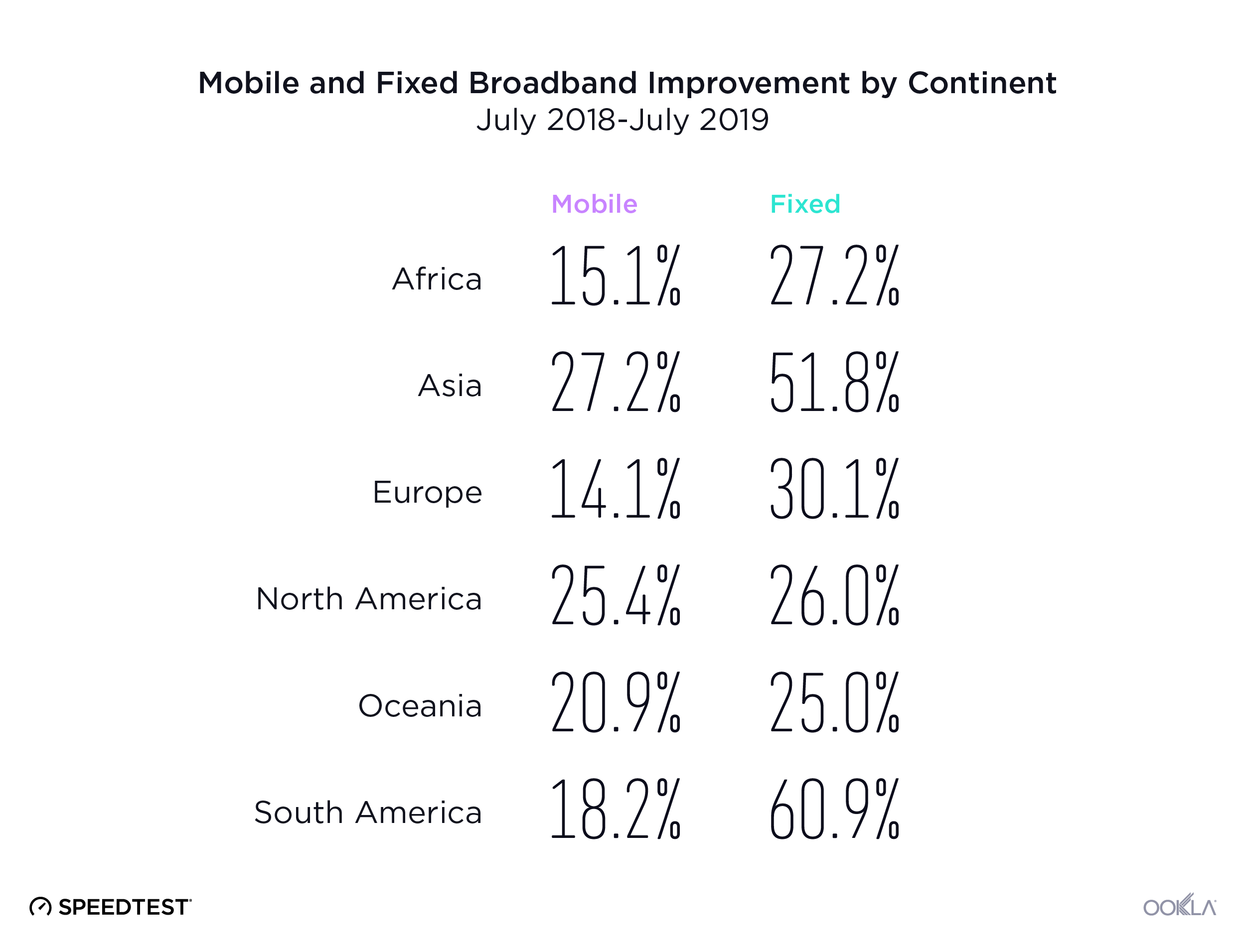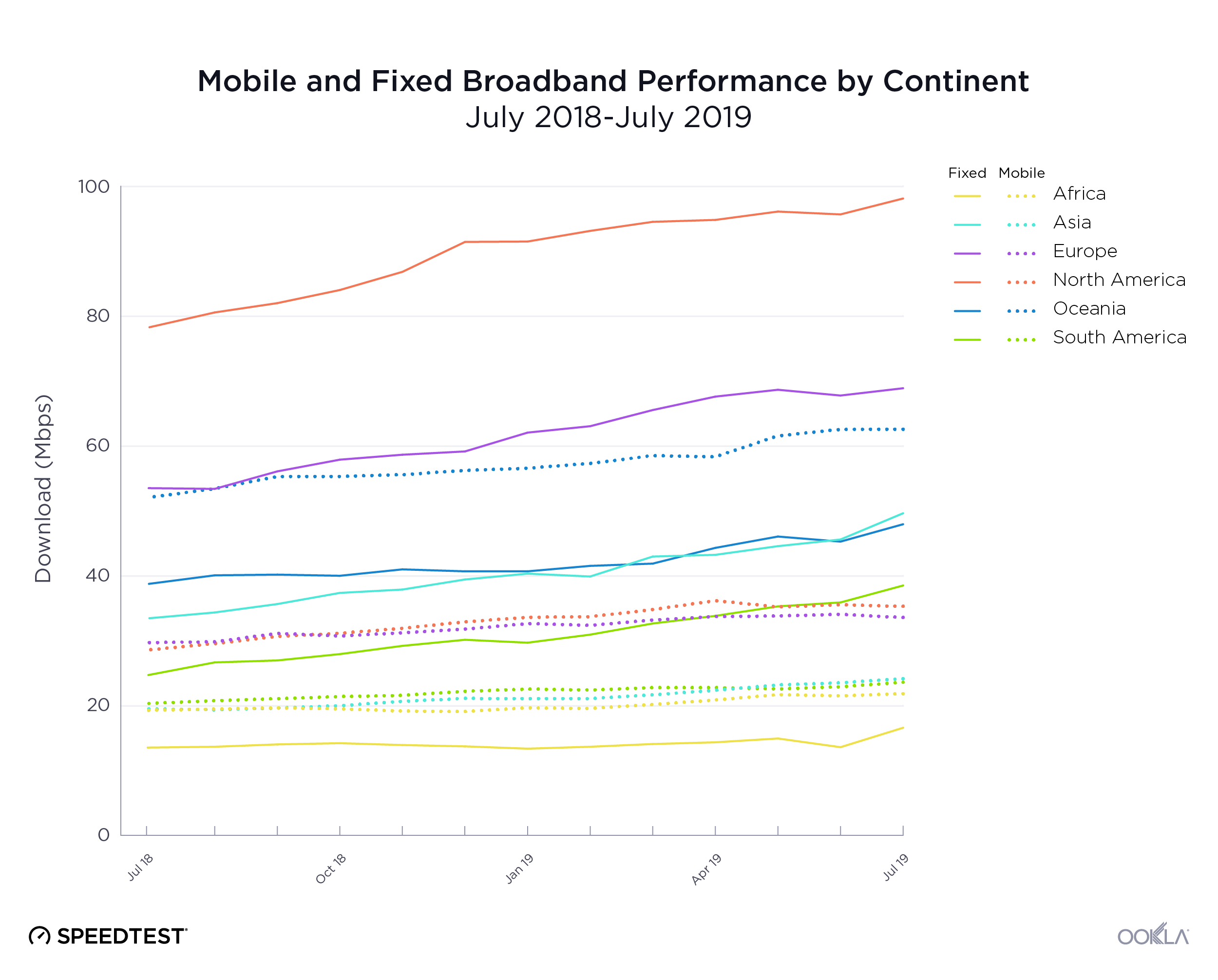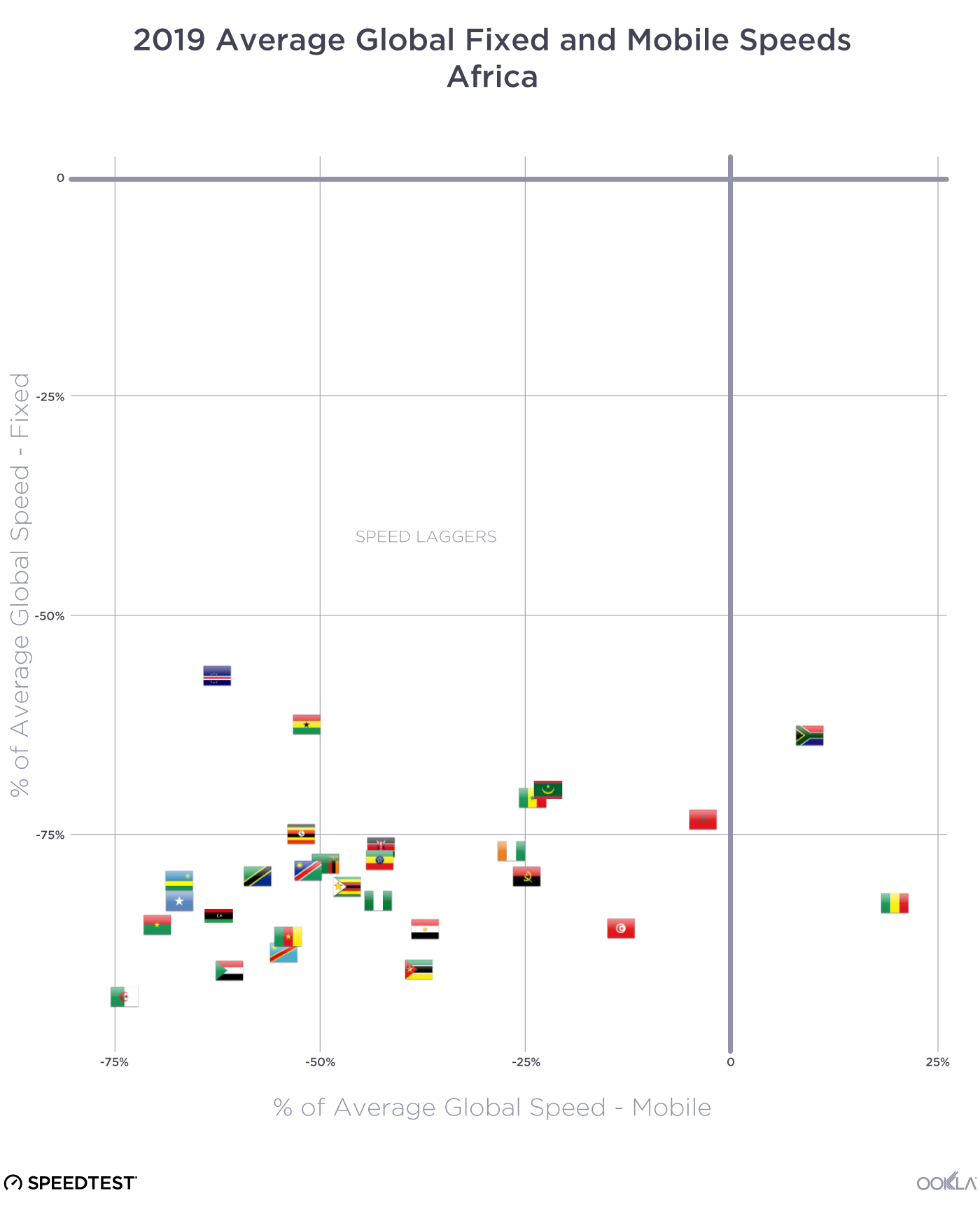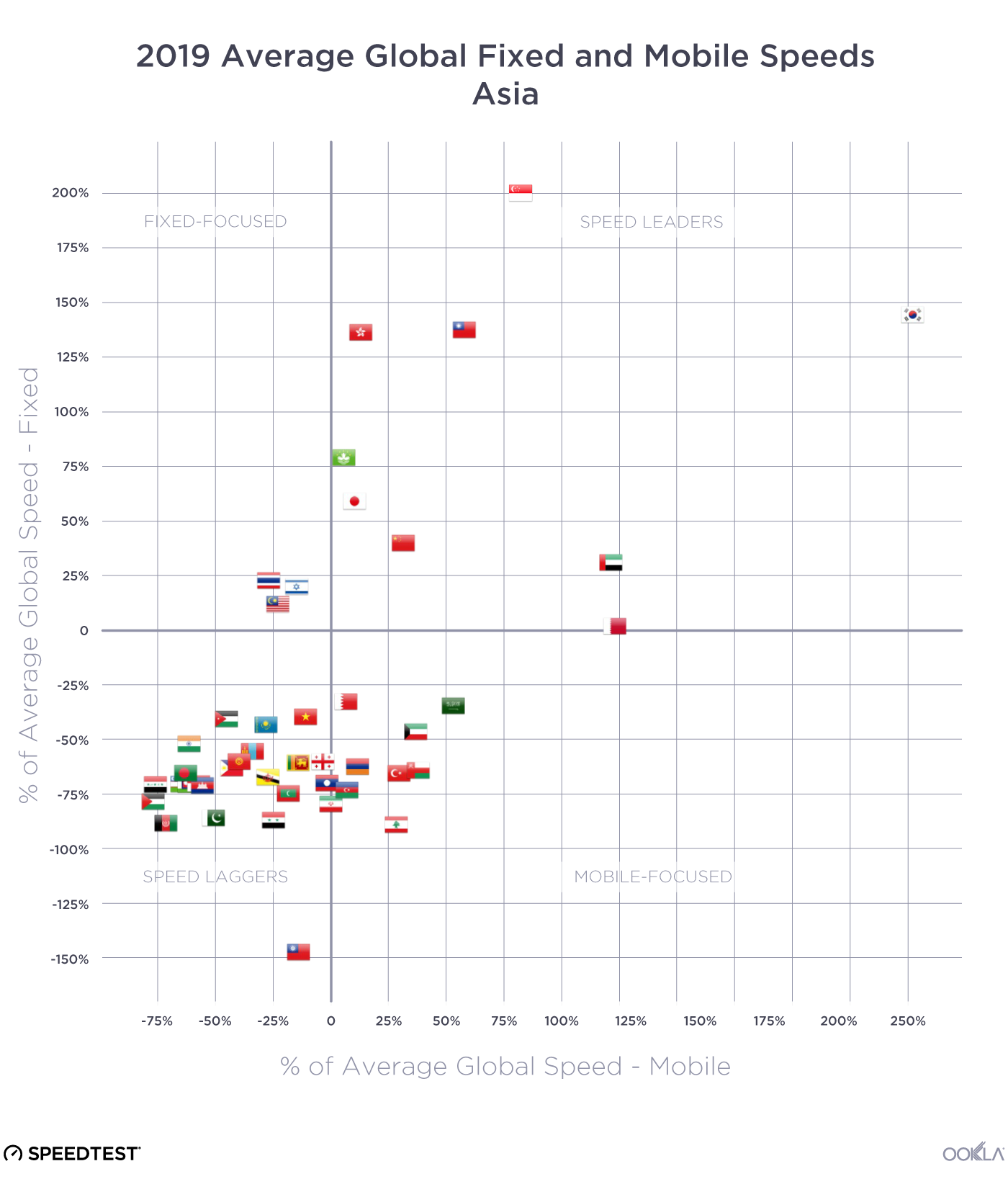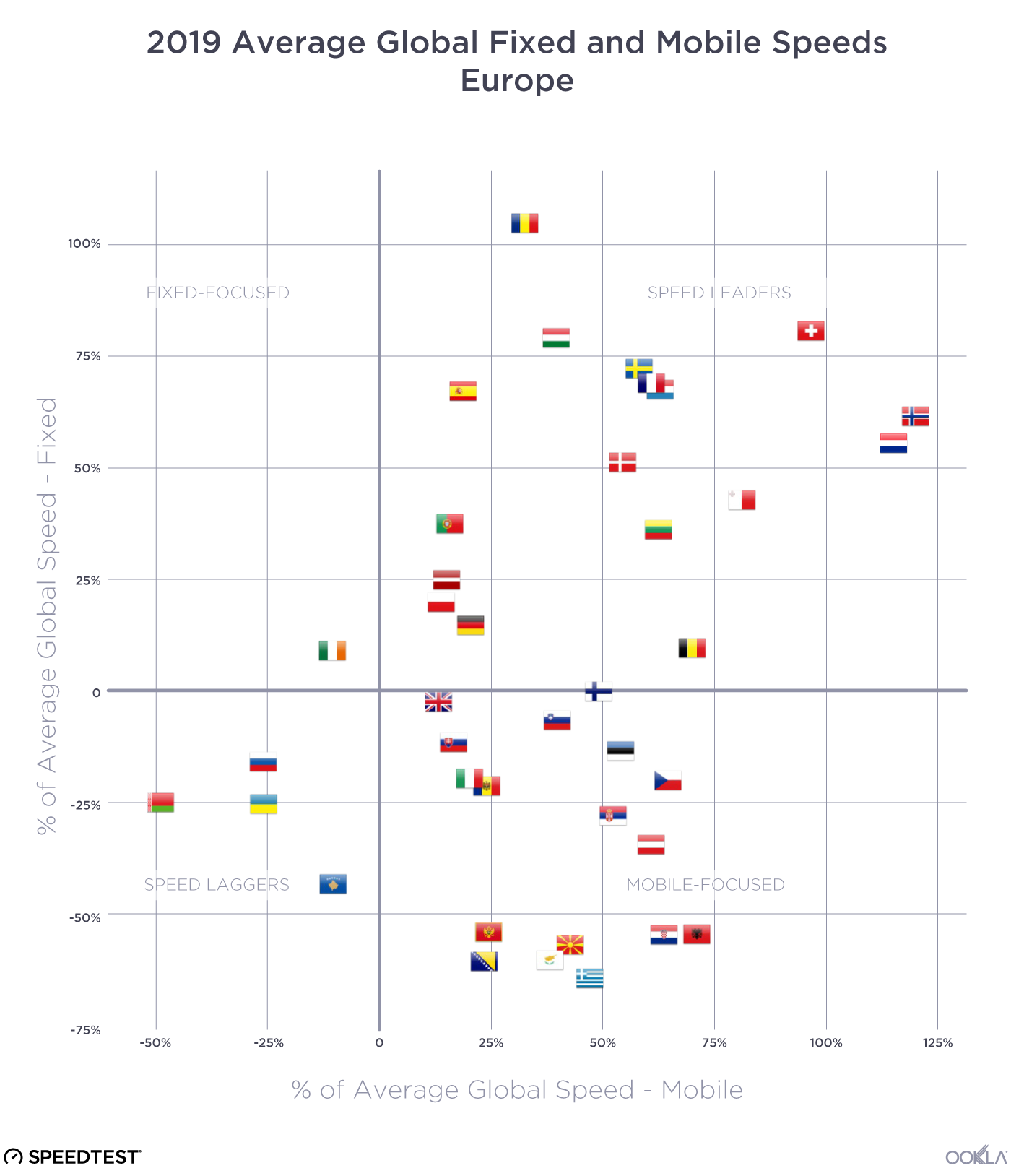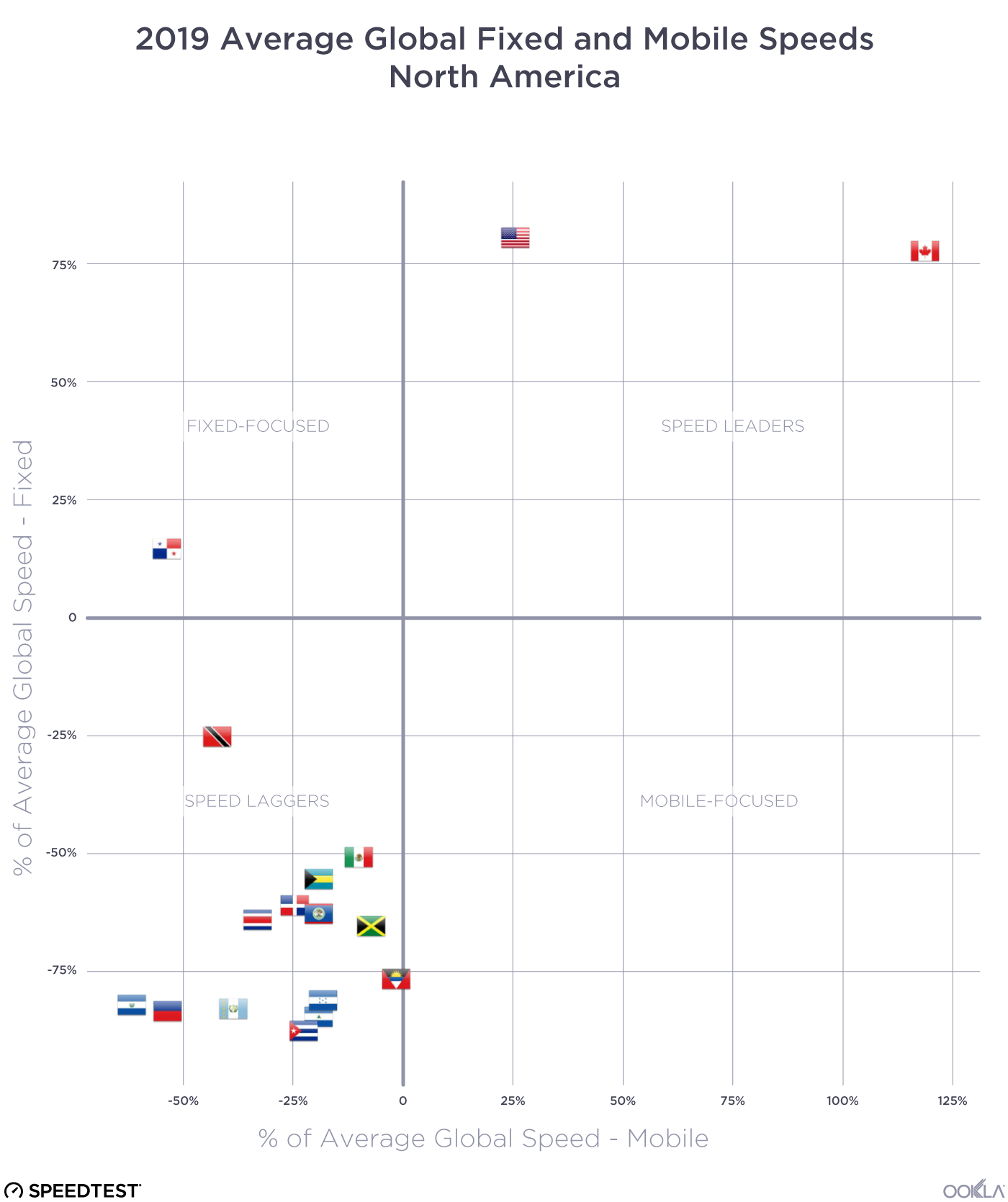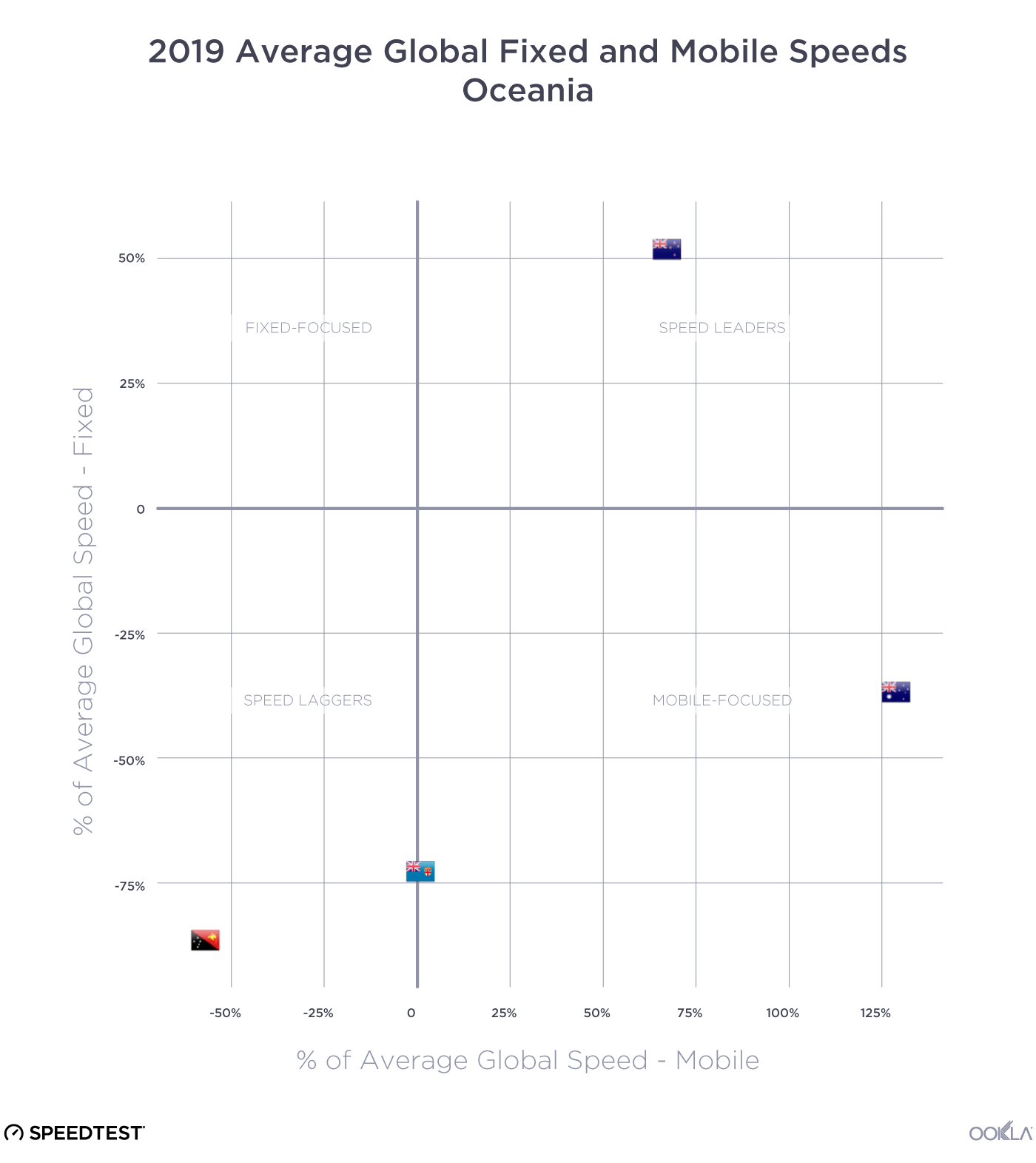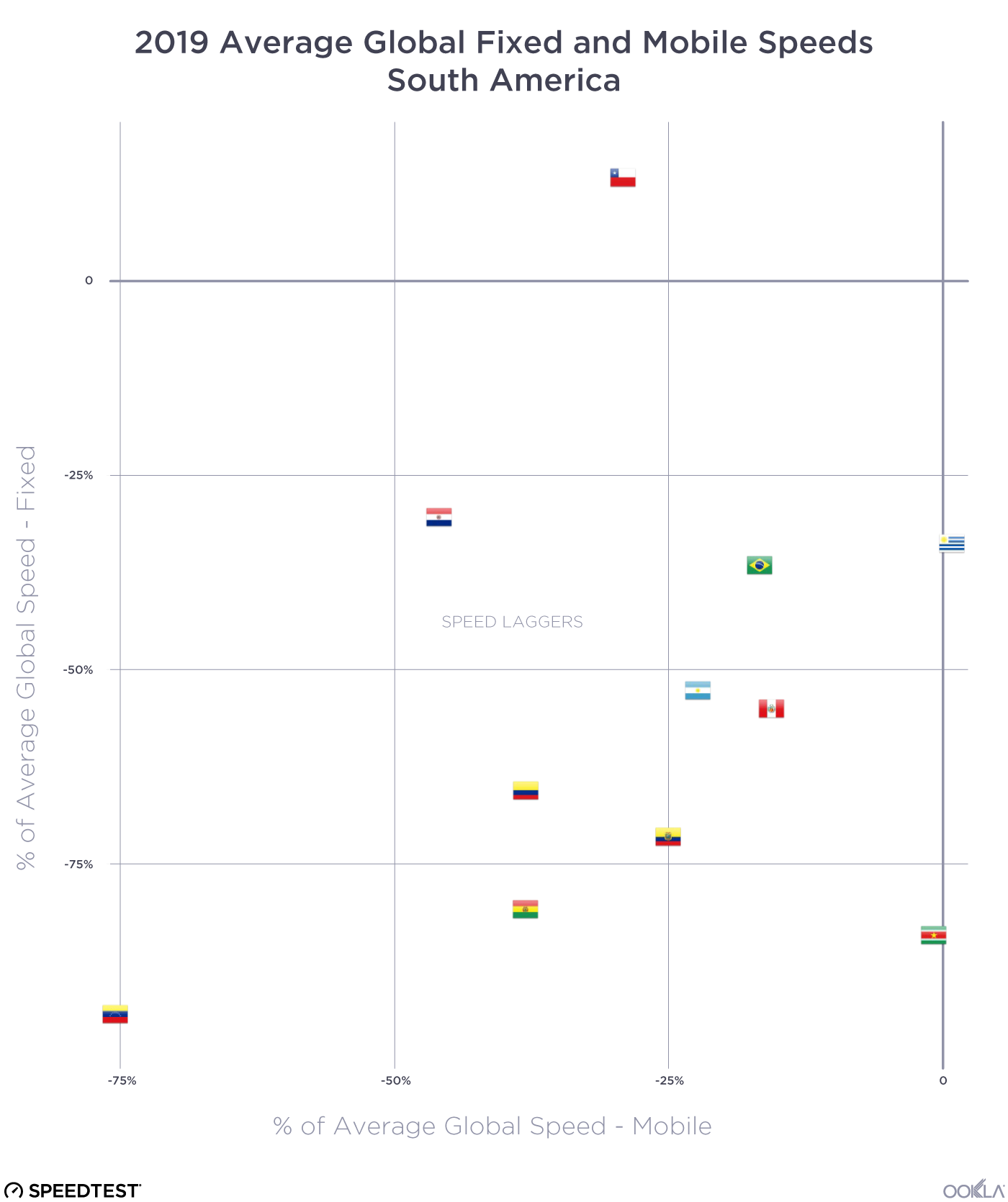

Whether you call it soccer or football, everyone calls the World Cup fun. We couldn’t wait for the actual match-ups in June, so we decided to pit the qualifying countries against one another to see who has the fastest internet speeds in their capital cities. The results might surprise you.
Get ready to watch Russia best Brazil and Portugal defeat Iran; meanwhile, Argentina and Nigeria and Belgium and England are preparing for penalty shoot-outs.
Using data from Speedtest Intelligence for Q3-Q4 2017, we’ve calculated which capital cities of World Cup-qualifying countries have the fastest mobile and fixed broadband speeds. We also took a peek at the fastest carriers and internet service providers (ISPs) in each capital using Speed Score, a comprehensive metric that combines measures of internet performance at all levels.
Mobile winners
Iceland’s sixth place ranking for mobile download speed in the Speedtest Global IndexTM virtually assured that Reykjavík would come out at the top of the list of fastest World Cup contenders. Canberra represents Australia well with a second place finish for mobile download speeds among World Cup capitals. And Brussels, Belgium barely surpasses Bern, Switzerland for a third place finish.
| Country | Capital City | Average Download (Mbps) | Average Upload (Mbps) |
|---|---|---|---|
| Iceland | Reykjavík | 55.49 | 21.53 |
| Australia | Canberra | 44.24 | 12.60 |
| Belgium | Brussels | 42.52 | 16.74 |
| Switzerland | Bern | 42.02 | 17.52 |
| South Korea | Seoul | 41.85 | 14.15 |
| Denmark | Copenhagen | 41.78 | 18.29 |
| Croatia | Zagreb | 41.16 | 16.40 |
| Sweden | Stockholm | 40.12 | 12.63 |
| Spain | Madrid | 38.30 | 14.02 |
| Portugal | Lisbon | 30.60 | 11.39 |
| Serbia | Belgrade | 30.33 | 12.49 |
| France | Paris | 29.03 | 9.26 |
| Poland | Warsaw | 26.94 | 9.84 |
| Germany | Berlin | 25.83 | 9.51 |
| England | London | 25.09 | 11.49 |
| Russia | Moscow | 21.89 | 8.49 |
| Japan | Tokyo | 19.89 | 7.10 |
| Uruguay | Montevideo | 19.82 | 11.49 |
| Mexico | Mexico City | 19.11 | 11.51 |
| Peru | Lima | 18.33 | 12.90 |
| Tunisia | Tunis | 18.27 | 8.07 |
| Brazil | Brasília | 18.00 | 8.64 |
| Morocco | Rabat | 17.32 | 9.76 |
| Colombia | Bogotá | 16.87 | 9.50 |
| Nigeria | Abuja | 16.17 | 6.76 |
| Iran | Tehran | 15.05 | 7.04 |
| Argentina | Buenos Aires | 13.77 | 7.70 |
| Egypt | Cairo | 13.15 | 6.33 |
| Panama | Panama City | 12.89 | 8.45 |
| Saudi Arabia | Riyadh | 12.28 | 8.88 |
| Senegal | Dakar | 8.85 | 3.81 |
| Costa Rica | San José | 5.97 | 3.33 |
Looking at the group draw, Group A fares the worst with 16th place Moscow, Russia being the capital city with the fastest mobile downloads in the group. In Group B, Spain comes out on top. Australia wins Group C, Iceland takes Group D, Switzerland leads Group E and South Korea has the fastest mobile download speed in Group F. Belgium finishes first in Group G and Poland prevails in Group H, despite a 13th place finish overall.
From a regional perspective, European capitals top the rankings with all 14 European World Cup capitals sitting in the top half of the list. Latin American, Middle Eastern and African cities fare worst. Asia’s two contenders are split with Seoul boasting the fifth fastest mobile download speed among World Cup capitals and Tokyo, Japan coming in 17th.
The fastest World Cup capital in Latin America (Montevideo, Uruguay) shows a 64.3% slower mobile download speed than Reykjavík. First place among African World Cup capitals, Rabat, Morocco is 68.8% slower than Reykjavík for mobile downloads. And Tehran, Iran, the fastest World Cup capital in the Middle East, is 72.9% slower than Reykjavík.
Fastest carriers
We also looked into which carriers were fastest in each of the 32 World Cup capital cities.
With Speed Scores ranging from 8.89 in Dakar, Senegal to 46.57 in Brussels, mobile carrier Orange was fastest in four cities and tied for fastest in one. Vodafone was fastest in both Lisbon, Portugal and Madrid, Spain with comparable Speed Scores in the two locations. The rest of the cities show the diversity of fastest carriers that you might expect from a worldwide competition.
| Country | Capital City | Fastest Carrier | Speed Score |
|---|---|---|---|
| Argentina | Buenos Aires | Personal | 16.15 |
| Australia | Canberra | Telstra | 50.21 |
| Belgium | Brussels | Orange | 46.57 |
| Brazil | Brasília | Claro | 24.72 |
| Colombia | Bogotá | Avantel | 20.93 |
| Costa Rica | San José | ICE | 8.30 |
| Croatia | Zagreb | Hrvatski Telekom | 49.35 |
| Denmark | Copenhagen | TDC / Telia | 45.34 / 45.09 |
| Egypt | Cairo | Orange | 16.50 |
| England | London | EE | 36.83 |
| France | Paris | Orange | 33.15 |
| Germany | Berlin | Telekom | 53.54 |
| Iceland | Reykjavík | Nova | 64.61 |
| Iran | Tehran | MTN IranCell | 15.89 |
| Japan | Tokyo | SoftBank | 27.26 |
| Mexico | Mexico City | AT&T | 20.26 |
| Morocco | Rabat | inwi | 20.51 |
| Nigeria | Abuja | MTN | 29.23 |
| Panama | Panama City | Cable & Wireless Panama / Movistar | 14.85 / 14.80 |
| Peru | Lima | Entel Peru | 20.73 |
| Poland | Warsaw | T-Mobile | 36.07 |
| Portugal | Lisbon | Vodafone | 42.44 |
| Russia | Moscow | MegaFon | 37.06 |
| Saudi Arabia | Riyadh | Zain | 13.20 |
| Senegal | Dakar | Orange | 8.89 |
| Serbia | Belgrade | Vip mobile | 45.56 |
| South Korea | Seoul | LG U+ | 50.03 |
| Spain | Madrid | Vodafone | 40.17 |
| Sweden | Stockholm | Telia | 54.49 |
| Switzerland | Bern | Sunrise / Swisscom | 42.14 / 41.91 |
| Tunisia | Tunis | Ooredoo / Orange | 19.90 / 19.89 |
| Uruguay | Montevideo | Antel | 20.35 |
Fixed broadband winners
Given that Iceland ranks second in the world for fixed broadband download speed on the Speedtest Global Index and has the world’s highest gigabit user penetration (GUP), we’re not surprised to see Reykjavík shut out the competition by coming out on top of World Cup contenders for fixed broadband speed, too. Seoul, South Korea comes in second for fixed broadband download speed among World Cup capitals and Paris, France takes third.
| Country | Capital City | Average Download (Mbps) | Average Upload (Mbps) |
|---|---|---|---|
| Iceland | Reykjavík | 142.89 | 154.28 |
| South Korea | Seoul | 130.75 | 131.96 |
| France | Paris | 112.58 | 55.86 |
| Sweden | Stockholm | 98.77 | 66.68 |
| Spain | Madrid | 86.59 | 73.43 |
| Japan | Tokyo | 75.88 | 70.46 |
| Denmark | Copenhagen | 72.74 | 52.13 |
| Switzerland | Bern | 68.82 | 54.44 |
| Poland | Warsaw | 62.57 | 16.19 |
| Portugal | Lisbon | 55.80 | 30.97 |
| England | London | 52.53 | 16.12 |
| Germany | Berlin | 46.84 | 9.52 |
| Russia | Moscow | 45.25 | 42.96 |
| Belgium | Brussels | 43.25 | 9.63 |
| Panama | Panama City | 29.11 | 5.93 |
| Australia | Canberra | 28.85 | 12.46 |
| Serbia | Belgrade | 26.45 | 5.59 |
| Croatia | Zagreb | 26.20 | 11.40 |
| Mexico | Mexico City | 24.11 | 10.14 |
| Uruguay | Montevideo | 23.02 | 5.82 |
| Argentina | Buenos Aires | 22.03 | 4.26 |
| Brazil | Brasília | 21.57 | 5.29 |
| Saudi Arabia | Riyadh | 20.93 | 9.05 |
| Peru | Lima | 18.15 | 3.51 |
| Colombia | Bogotá | 13.43 | 6.48 |
| Morocco | Rabat | 11.83 | 2.51 |
| Iran | Tehran | 9.33 | 4.18 |
| Costa Rica | San José | 8.79 | 4.29 |
| Nigeria | Abuja | 8.07 | 5.27 |
| Tunisia | Tunis | 7.82 | 4.49 |
| Senegal | Dakar | 7.42 | 3.11 |
| Egypt | Cairo | 5.61 | 1.92 |
Group A again suffers on the fixed side with leader Russia coming in 13th based on Moscow’s fixed broadband download speed. Spain’s still the front-runner of Group B. France takes Group C, Iceland wins Group D, Switzerland tops Group E, South Korea reigns over Group F, England heads up Group G and Japan starts Group H based on average download speeds over fixed broadband in their respective capitals.
European capitals again fare well, with 12 of the 14 placing in the top half of fastest World Cup capitals for fixed broadband download speed. Belgrade, Serbia and Zagreb, Croatia rank 17th and 18th, respectively. Tokyo ranks much better for fixed broadband download speed than for mobile, which puts both Asian World Cup capitals in the top six.
With the exception of Panama City, Panama, which ranks 15th, all Latin American World Cup capitals are in the bottom half of the list for download speed over fixed broadband. As are all Middle Eastern and African capital cities.
Panama City’s fixed broadband download speed is 79.6% slower than Reykjavík’s. Riyadh, Saudia Arabia boasts the title of fastest World Cup capital in the Middle East, but is still 85.4% slower for fixed broadband downloads than Reykjavík. The fastest World Cup capital in Africa — Rabat, Morocco — is 91.7% slower than Reykjavík.
Fastest providers
Comparing Speed Scores for fixed broadband across World Cup capitals, Vodafone had wins in Berlin, Germany and Lisbon and Orange took Paris and tied for first in Madrid. The rest of the fastest ISPs vary by location as listed below:
| Country | Capital City | Fastest ISP | Speed Score |
|---|---|---|---|
| Argentina | Buenos Aires | Cablevisión Fibertel | 21.72 |
| Australia | Canberra | iiNet | 33.23 |
| Belgium | Brussels | Telenet | 66.95 |
| Brazil | Brasília | NET Virtua | 27.30 |
| Colombia | Bogotá | ETB | 19.17 |
| Costa Rica | San José | Cabletica | 8.28 |
| Croatia | Zagreb | vip | 30.23 |
| Denmark | Copenhagen | Fiberby | 103.26 |
| Egypt | Cairo | TE Data | 4.84 |
| England | London | Hyperoptic | 117.40 |
| France | Paris | Orange | 107.20 |
| Germany | Berlin | Vodafone | 55.46 |
| Iceland | Reykjavík | Nova | 278.06 |
| Iran | Tehran | Mobin Net | 11.74 |
| Japan | Tokyo | So-net | 118.05 |
| Mexico | Mexico City | Axtel | 45.83 |
| Morocco | Rabat | Maroc Telecom | 9.25 |
| Nigeria | Abuja | MTN | 10.73 |
| Panama | Panama City | Cable Onda | 25.08 |
| Peru | Lima | Movistar | 16.64 |
| Poland | Warsaw | UPC | 82.72 |
| Portugal | Lisbon | Vodafone | 61.80 |
| Russia | Moscow | MGTS | 62.00 |
| Saudi Arabia | Riyadh | STC | 16.46 |
| Senegal | Dakar | Tigo | 6.42 |
| Serbia | Belgrade | SBB | 34.60 |
| South Korea | Seoul | KT | 162.45 |
| Spain | Madrid | Masmovil / Orange | 101.52 / 101.34 |
| Sweden | Stockholm | Ownit | 158.78 |
| Switzerland | Bern | Fiber7 | 241.93 |
| Tunisia | Tunis | TOPNET | 7.61 |
| Uruguay | Montevideo | Antel | 22.01 |
Did your team not come out as expected? Or are you defending a tight match? Take a Speedtest on Android, iOS or on the web and we’ll check back in on scores closer to the main event.
Ookla retains ownership of this article including all of the intellectual property rights, data, content graphs and analysis. This article may not be quoted, reproduced, distributed or published for any commercial purpose without prior consent. Members of the press and others using the findings in this article for non-commercial purposes are welcome to publicly share and link to report information with attribution to Ookla.

